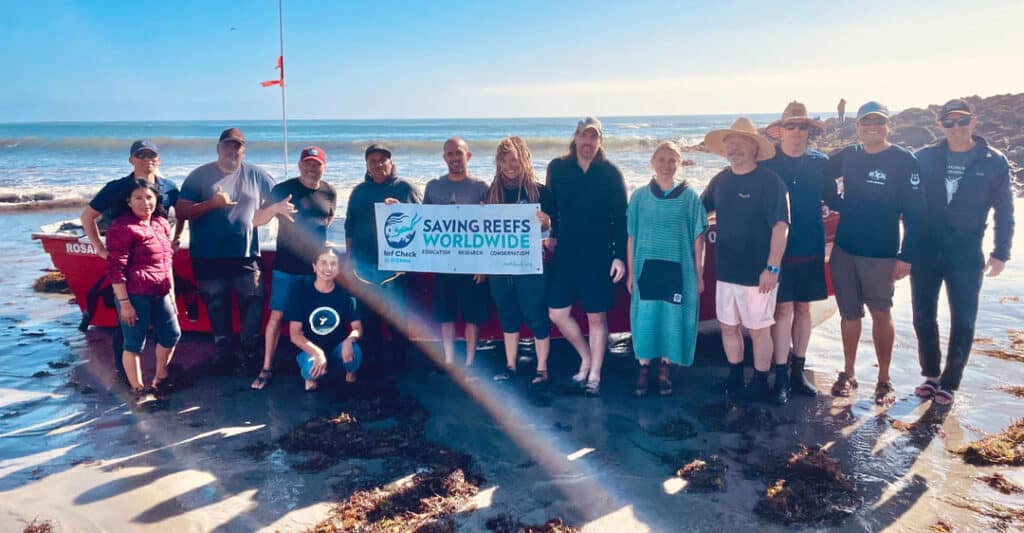
In the coastal regions of San Diego and Ensenada, Reef Check and our partners at EcoCiMaTi and UABC (Universidad Autónoma de Baja California) piloted an initiative to better understand threats facing kelp forests in our shared oceans. Driven by a shared commitment to safeguarding the vital kelp ecosystems surrounding the Coronado Islands, the team worked over the course of a year to recruit and train a binational group of citizen scientists, conduct Reef Check surveys, and engage communities on both sides of the U.S.-Mexico border in our efforts. The project was developed to address the urgent need for ecological monitoring and community awareness of the state of kelp surrounding the Coronado Islands, and was made possible thanks to grant support from the San Diego Foundation.
Some of the highlights of the year-long project were:
We developed training materials in both Spanish and English. These materials ensured that all participants could fully engage in the project’s activities regardless of their primary language. The training provided divers with the skills needed to conduct ecological surveys and also empowered them with knowledge about kelp forest conservation strategies.

One of the most remarkable achievements of this project is the successful recruitment and training of an 18-member binational team of SCUBA divers from San Diego and Mexico. This diverse group— comprising individuals from government, academia, the fishing cooperatives, and the recreational dive community—, brought together a wealth of knowledge and experience. This was the spark for establishing a long lasting, binational network to ensure the ongoing monitoring and conservation of kelp beds in the region. Participants were empowered with the knowledge and skills needed to actively participate in kelp forest conservation. These divers are now equipped to take on leadership roles in future monitoring and restoration efforts.
The ecological surveys conducted by the team yielded critical data on the current state of reefs around the Coronado Islands. This data highlighted the seemingly local extirpation of foundational macroalgae such as giant kelp (Macrocystis pyrifera) and California sea palm (Eisenia arborea). Additional monitoring efforts indicated an overabundance of herbivores, mainly sea urchins and gastropods, suggesting that overgrazing is hindering kelp recruitment. These findings are crucial for informing future restoration efforts, as they provide insight into one of the key challenges facing the recovery of kelp forests in the region.
Looking ahead, we are collaborating with our partners to develop a Reef Check Baja program as a critically important ongoing transboundary project to monitor and protect the health of the kelp in our project sites. Our long-term vision is to create a self-sustaining program that monitors reefs and to develop restoration projects from Oceanside to San Quintín. By establishing a comprehensive and ongoing restoration program, we hope to see the revival of kelp forests and the ecological benefits they provide.
 Subscribe to Newsletter
Subscribe to Newsletter Donate
Donate Shop
Shop 0
0









